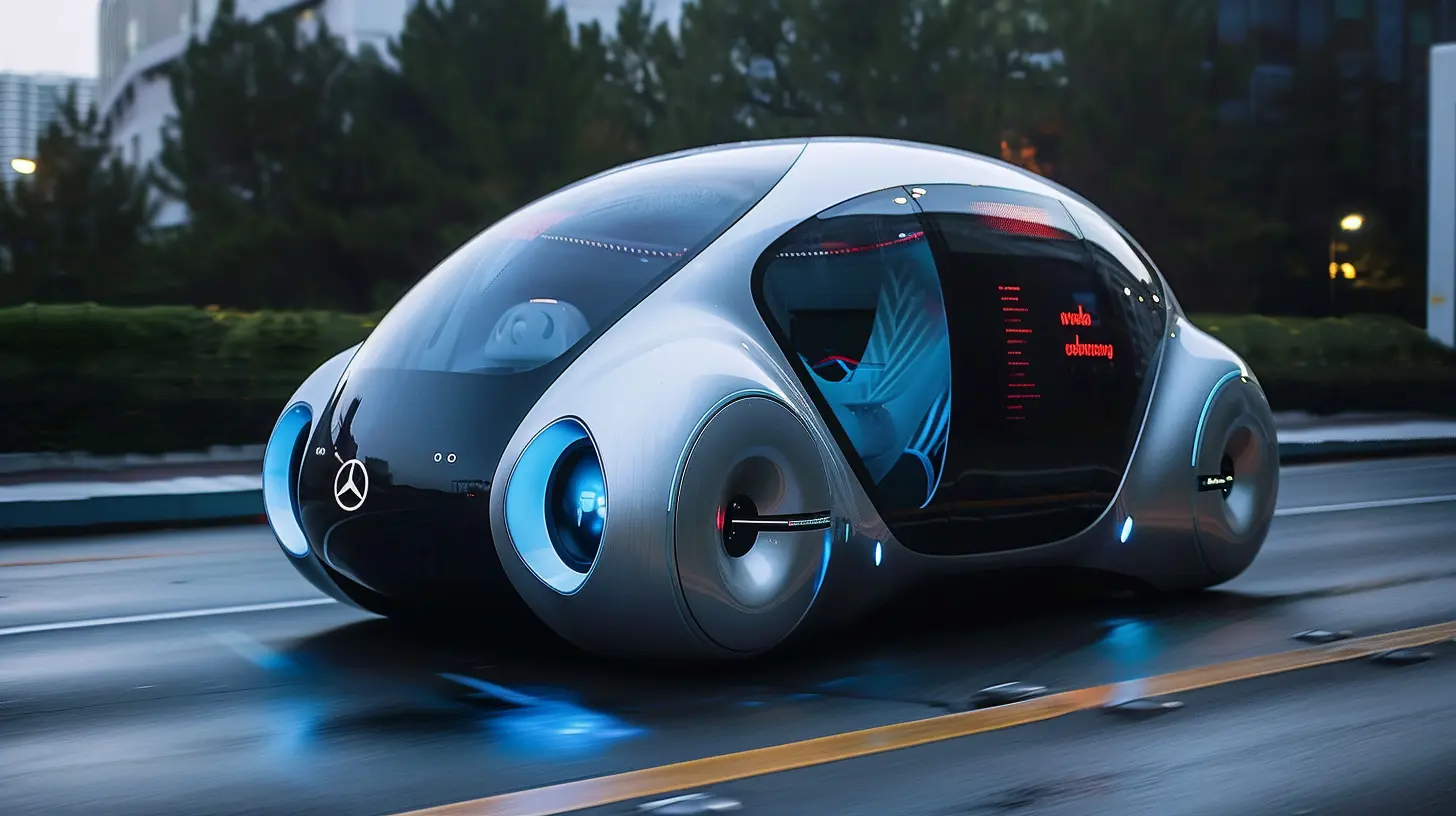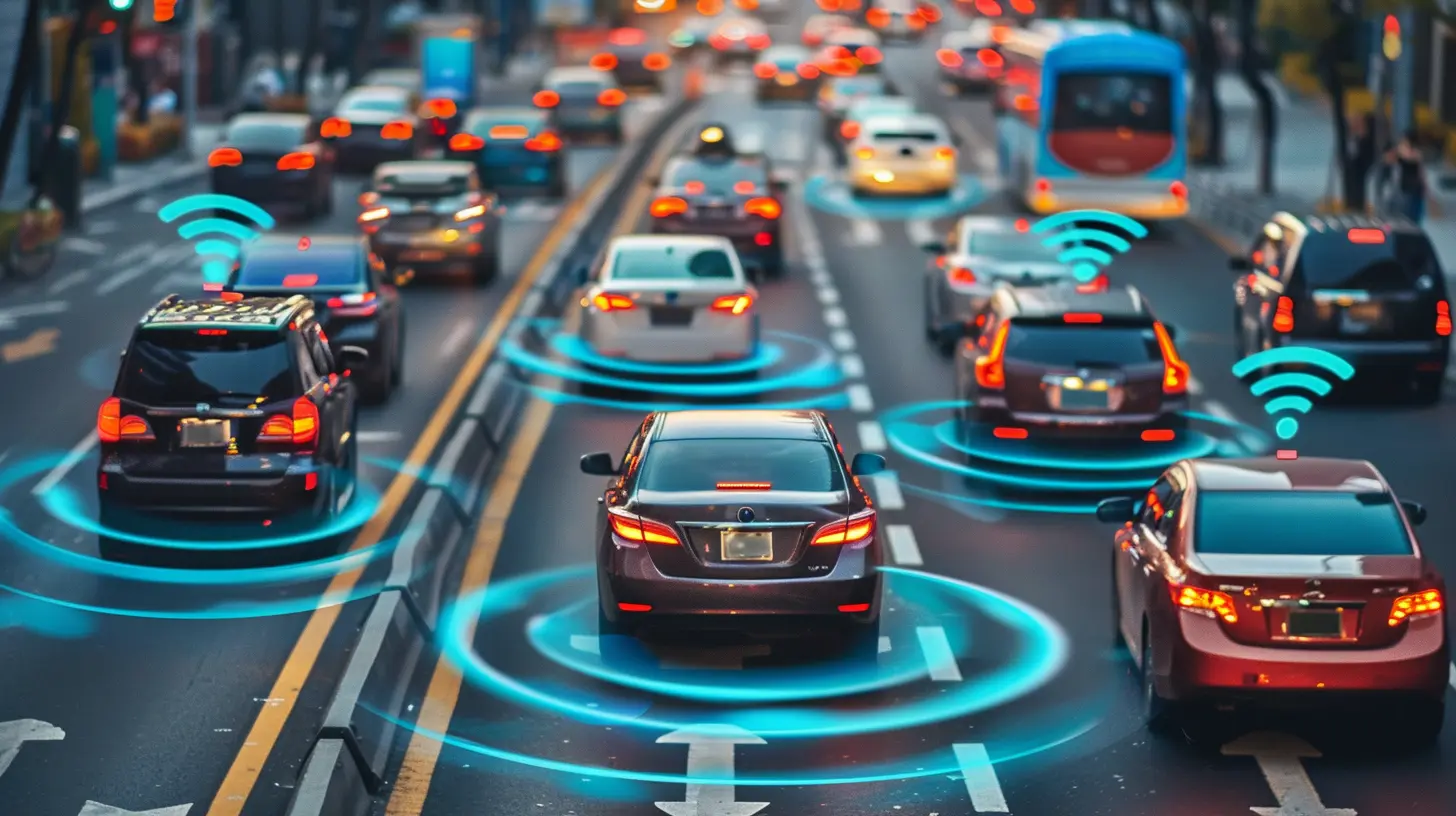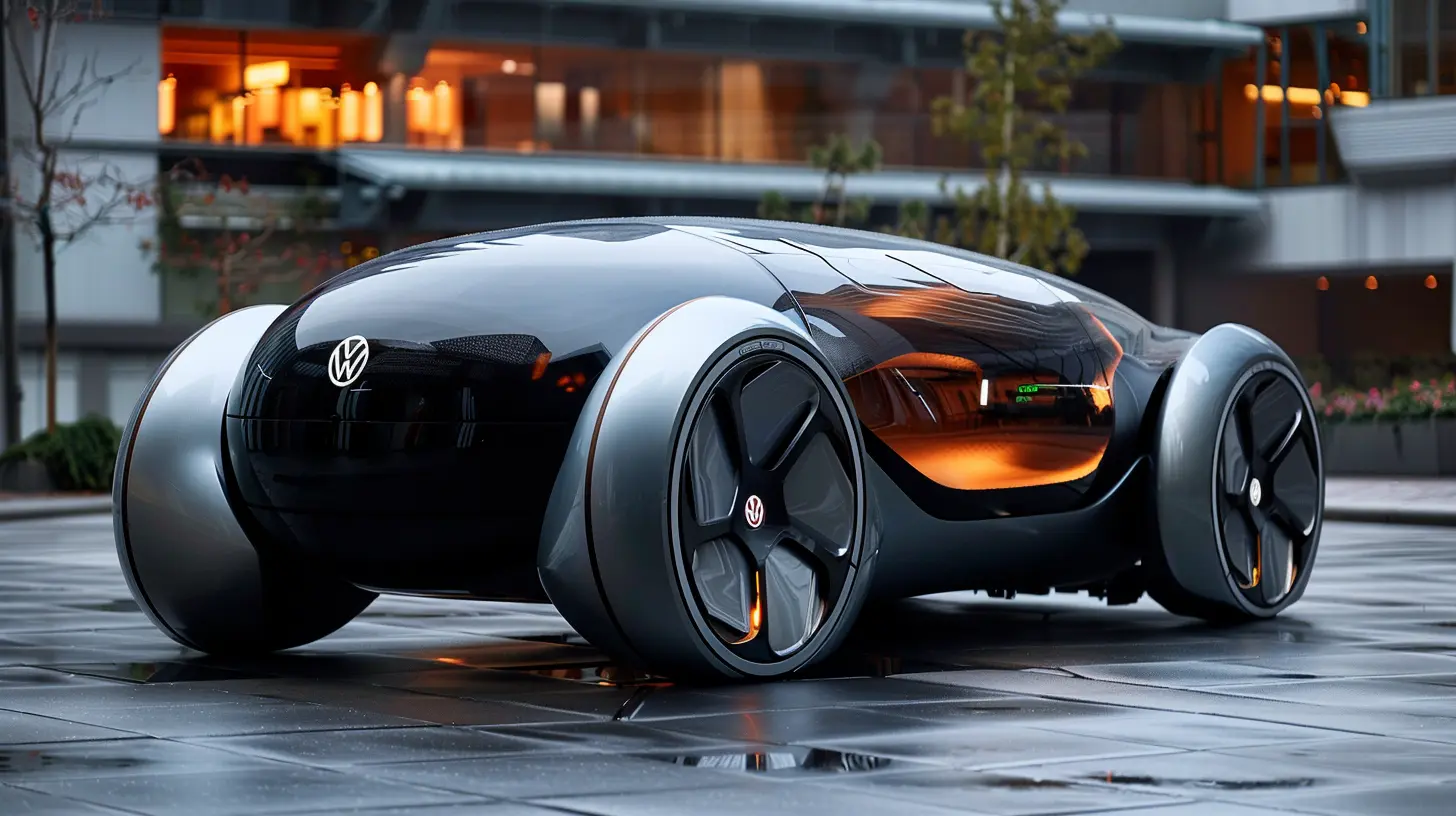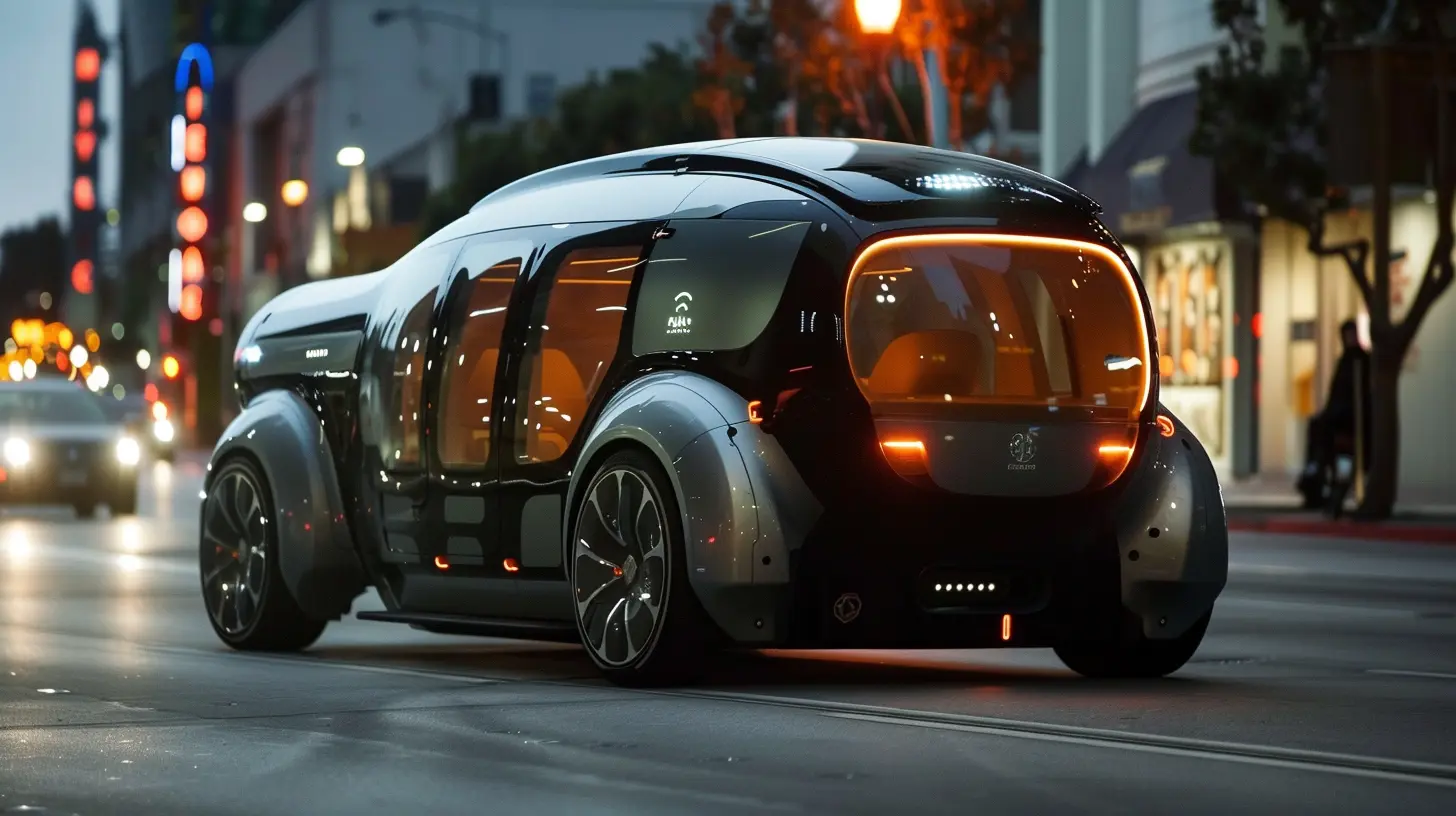Autonomous Vehicles and the Future of Personal Data Privacy
4 March 2025
Autonomous vehicles (AVs) are no longer a futuristic concept but rather a rapidly evolving reality that promises to reshape how we commute and interact with transportation. With companies like Tesla, Waymo, Uber, and others pushing the boundaries of self-driving technology, it's only a matter of time before fully autonomous cars become mainstream.
Exciting? Absolutely. But there's a catch — as these vehicles become more autonomous, they also become data-hungry machines. And this brings us to an important question: what happens to all the personal data these vehicles collect?

The Rise of Autonomous Vehicles
Autonomous vehicles, commonly referred to as self-driving cars, are equipped with advanced sensors, cameras, radar systems, and sophisticated algorithms that allow them to navigate roads without any human intervention. The goal is to create a safer and more efficient transportation system. In theory, AVs could reduce traffic accidents, minimize congestion, and even cut down on carbon emissions. Sounds like a win-win, right?But beneath the sleek design and cutting-edge technology lies a less glamorous concern — privacy. These vehicles don't just drive; they gather massive amounts of data. Every time an autonomous car hits the road, it collects information about its surroundings, other cars, pedestrians, road conditions, and, most importantly, its passengers.

The Data Goldmine
Let's face it: data is the new oil. Companies are eager to get their hands on as much of it as possible, and autonomous vehicles are poised to be one of the richest sources of data in the modern world. Think about it. These cars will collect data on where you go, how often you travel, what routes you take, and even the music you listen to while you're driving.This data is incredibly valuable, not just to car manufacturers but also to advertisers, insurance companies, law enforcement, and even hackers. With such a treasure trove of information available, it’s no wonder there are concerns about how this data will be used, stored, and protected.

What Kind of Data Do Autonomous Vehicles Collect?
Before diving into privacy issues, let’s break down exactly what kind of data autonomous vehicles are collecting.1. Location Data: Your car knows where you are, where you've been, and where you're going. Every trip is tracked in minute detail, even down to the specific route you take and how long you stay in one place.
2. Behavioral Data: AVs can monitor how you drive (assuming you’re manually driving at any point), how often you brake, your speed, your driving patterns, and more. In fully autonomous cars, this could shift to monitoring how you interact with the vehicle.
3. Biometric Data: Some autonomous vehicles are equipped with facial recognition, fingerprint scanners, or even heart rate monitors. This is meant to enhance security and provide a personalized driving experience, but it also means your biometrics are being recorded and stored.
4. Environmental Data: AVs collect data about road conditions, weather, traffic patterns, and other cars on the road. This data helps improve the vehicle’s ability to navigate, but it could also be used for other purposes.
5. Entertainment Preferences: Your car knows if you prefer jazz or pop, podcasts or audiobooks. This may seem trivial, but it can be used to build a profile of your preferences, which could be sold to advertisers or third-party companies.

The Privacy Concerns
Now that we know what kind of data is being collected, let’s talk about the elephant in the room: privacy. With all this information being gathered, the question is: who owns your data, and how will it be used?Lack of Clear Regulations
One of the biggest issues with autonomous vehicles and data privacy is the lack of clear regulations. Current data privacy laws, such as GDPR (General Data Protection Regulation) in Europe or CCPA (California Consumer Privacy Act) in the U.S., weren’t designed with autonomous vehicles in mind. This creates a gray area where companies may not be held accountable for how they collect and use this data.Data Sharing with Third Parties
Many car manufacturers and tech companies have a habit of sharing or selling data to third parties, such as advertisers, insurance companies, or even government agencies. In the context of autonomous vehicles, this could mean that your travel habits, personal preferences, and even biometric data could end up in the hands of companies you've never heard of.Risk of Hacking
Autonomous vehicles are essentially computers on wheels. And like any computer, they are vulnerable to hacking. Imagine a hacker gaining access to your car’s data or, worse, its control systems. The implications could be catastrophic — from unauthorized access to your personal information to potentially dangerous situations where a car’s systems are compromised.Surveillance Concerns
There’s also the potential for autonomous vehicles to become tools for surveillance. Governments or law enforcement could use AVs to track individuals, monitor travel patterns, or even spy on people's private lives. It’s not hard to imagine a future where AVs are used as a form of mass surveillance, further eroding the concept of personal privacy.Protecting Your Data in the Age of Autonomous Vehicles
So, what can be done to protect personal data in the age of autonomous vehicles? While there’s no one-size-fits-all solution, several steps can help ensure that your data remains safe and secure.Stronger Data Protection Laws
First and foremost, we need stronger data protection laws specifically designed for autonomous vehicles. These laws should clearly define what data can be collected, how it can be used, and who owns it. More importantly, there should be strict penalties for companies that misuse or fail to protect your data.Transparency and Consent
Transparency is key. Companies should be required to inform consumers about what data is being collected and how it will be used. This information should be presented in a way that’s easy to understand — not buried in pages of legal jargon. Additionally, consumers should have the option to opt-in or opt-out of data collection and sharing.Encryption and Security Measures
To protect against hacking, companies must implement robust encryption and security measures. All data collected by autonomous vehicles should be encrypted both at rest and in transit. This ensures that even if hackers manage to access the data, they won’t be able to read it without the encryption keys.Limit Data Collection
Another way to protect privacy is to limit the amount of data being collected in the first place. Companies should adopt a “data minimization” approach, meaning they only collect the data that’s absolutely necessary for the vehicle to function. There’s no need for your car to track every single aspect of your life.Consumer Empowerment
Finally, consumers need to be empowered to take control of their own data. This includes the ability to view, edit, or delete their personal data at any time. In the future, we may even see the rise of personal data marketplaces, where consumers can choose to sell their data directly to companies, cutting out the middleman and ensuring that they’re compensated for their information.
The Role of Artificial Intelligence (AI)
One of the driving forces behind autonomous vehicles is AI. Machine learning algorithms help these cars “learn” from the data they collect, making them better at navigating roads and avoiding obstacles. But AI can also be the key to improving data privacy.For example, AI could be used to anonymize data before it’s shared with third parties. Instead of sending raw data that includes your personal information, AI could strip out any identifying details, ensuring that your privacy is maintained while still allowing companies to use the data for research and development.
Additionally, AI could help detect and prevent cyberattacks. By constantly analyzing data in real-time, AI systems can identify unusual patterns that may indicate a hacking attempt and take immediate action to protect the vehicle and its passengers.
The Future: Balancing Innovation and Privacy
As autonomous vehicles become more widespread, we’ll need to strike a delicate balance between innovation and privacy. On one hand, the data collected by these vehicles can be used to improve transportation systems, reduce accidents, and make our lives more convenient. On the other hand, without proper safeguards, this data could be misused in ways that violate our privacy.It’s a tricky situation, but it’s not impossible to solve. By implementing stronger data protection laws, adopting transparent practices, and leveraging AI to enhance security, we can ensure that the future of autonomous vehicles is one where both innovation and privacy thrive.
Conclusion
Autonomous vehicles are undoubtedly the future of transportation, but with this exciting technological leap comes a host of new challenges, particularly when it comes to personal data privacy. As these vehicles become more common on our roads, the amount of data they collect will only continue to grow. Without the proper safeguards in place, the potential for misuse is significant. However, by advocating for stronger regulations, prioritizing transparency, and leveraging advanced security measures, we can protect our privacy and enjoy the benefits of this transformative technology.all images in this post were generated using AI tools
Category:
Autonomous VehiclesAuthor:

John Peterson
Discussion
rate this article
18 comments
Stella McGuffin
This article highlights crucial concerns about personal data privacy in autonomous vehicles, emphasizing the need for robust regulations to protect users.
April 7, 2025 at 10:35 AM

John Peterson
Thank you for your insightful comment! I completely agree that strong regulations are essential to safeguard personal data privacy in the evolving landscape of autonomous vehicles.
Liam Gates
This article raises important concerns about data privacy in the age of autonomous vehicles. Striking a balance between innovation and safeguarding personal information is crucial for a trustworthy future in transportation.
April 7, 2025 at 5:00 AM

John Peterson
Thank you for your insightful comment! Balancing innovation with data privacy is indeed essential for fostering trust in autonomous vehicles.
Eden Chapman
Balancing innovation and privacy is crucial.
April 5, 2025 at 8:38 PM

John Peterson
Absolutely, finding that balance is essential to ensure public trust while fostering technological advancements in autonomous vehicles.
Zoey Cummings
As autonomous vehicles become mainstream, prioritizing personal data privacy is non-negotiable. We must implement robust safeguards to protect user information while embracing the transformative potential of this technology.
April 3, 2025 at 8:41 PM

John Peterson
I completely agree. Ensuring robust data privacy protections is essential as we harness the benefits of autonomous vehicles. Balancing innovation with user trust is crucial for a successful future.
Briar Snow
Balancing innovation and privacy is crucial for trust.
April 2, 2025 at 1:02 PM

John Peterson
Absolutely, trust hinges on the careful integration of innovation with robust privacy measures in autonomous vehicles.
Kane Lamb
Exciting times ahead! The intersection of autonomous vehicles and personal data privacy presents a unique opportunity for innovation. Let's embrace technology while prioritizing our privacy—together, we can drive into a secure future! 🚗✨
March 30, 2025 at 3:34 AM

John Peterson
Absolutely! Balancing innovation with privacy is crucial as we navigate this exciting frontier. Together, we can shape a secure and innovative future!
Layla Bowers
Autonomous vehicles are like that overly friendly friend who knows a bit too much about you! While they promise smoother rides, let's just hope they don’t start sharing our snack preferences with the neighbors. Buckle up for a techy adventure into privacy land!
March 28, 2025 at 8:47 PM

John Peterson
Great analogy! As we embrace the convenience of autonomous vehicles, maintaining our privacy will be crucial. Balancing tech advancements with personal data protection is essential for a safe and enjoyable ride.
Jack McCallum
Balancing innovation in autonomous vehicles with strict personal data privacy is crucial.
March 26, 2025 at 11:35 AM

John Peterson
Absolutely, balancing innovation with data privacy is essential to fostering trust and ensuring the responsible development of autonomous vehicles.
Tobias McCaffrey
Autonomous vehicles must prioritize personal data privacy to build trust; innovation shouldn't compromise our fundamental right to privacy.
March 26, 2025 at 3:57 AM

John Peterson
I completely agree. Balancing innovation in autonomous vehicles with robust data privacy measures is essential for building public trust and ensuring that our fundamental rights are upheld.
Roman McKinney
Fascinating topic! The intersection of autonomous tech and data privacy raises important questions about trust and personal agency in our future.
March 25, 2025 at 1:54 PM

John Peterson
Thank you! It's essential to address these questions as we navigate the evolving landscape of technology and privacy.
Dylan Wood
This article sheds light on a crucial issue. Balancing innovation with personal data privacy is essential for building trust in autonomous vehicles. Thank you!
March 25, 2025 at 4:13 AM

John Peterson
Thank you for your insightful comment! Balancing innovation and privacy is indeed vital for fostering trust in autonomous vehicles.
Nellie Pacheco
Autonomous vehicles and personal data privacy? Great, now my car will know I stopped for ice cream three times this week! Just what I needed—two judgmental entities critiquing my life choices: my car and my scale. Welcome to the future!
March 23, 2025 at 7:22 PM

John Peterson
I completely understand your concern! Balancing convenience and privacy in the age of autonomous vehicles is crucial. We must prioritize data protection to ensure our choices remain private.
Yazmin Miller
Exciting times ahead! As autonomous vehicles evolve, we have the chance to redefine personal data privacy. Let’s embrace innovation while safeguarding our rights. The future is bright!
March 22, 2025 at 7:19 PM

John Peterson
Absolutely! The intersection of innovation and privacy is crucial as we navigate the future of autonomous vehicles. Let's work together to ensure that progress respects our rights.
Delilah McClintock
As we embrace the era of autonomous vehicles, let’s prioritize personal data privacy. By fostering innovation with a strong ethical foundation, we can ensure that technology enhances our lives without compromising our rights. Together, we can drive toward a future where safety and privacy coexist harmoniously!
March 21, 2025 at 9:16 PM

John Peterson
Thank you for emphasizing the importance of balancing innovation with privacy. Ensuring ethical standards in autonomous vehicles is crucial for creating a safe and respectful future.
Ezra Conrad
Great, now my car knows my secrets too. Awesome!
March 9, 2025 at 8:33 PM

John Peterson
I understand your concern! As we embrace autonomous vehicles, it's crucial to prioritize personal data privacy and ensure that your information remains secure.
Paxton McWain
While autonomous vehicles promise innovation, they raise significant concerns about data privacy and surveillance that must be addressed.
March 7, 2025 at 3:27 AM

John Peterson
You're right; addressing data privacy and surveillance is crucial as we embrace the innovations of autonomous vehicles. Balancing technology with privacy protections will be key to fostering public trust.
Sylvan Powell
Are autonomous vehicles the new nosy neighbors, or just really well-informed friends? Buckle up for a wild ride through data privacy—who's really in the driver’s seat?
March 5, 2025 at 9:35 PM

John Peterson
Autonomous vehicles can be seen as both—gathering data like nosy neighbors while offering insights like informed friends. The challenge lies in balancing innovation with robust data privacy protections to ensure individuals remain in control of their information.
Jackson Burton
Autonomous vehicles might drive us into the future, but let’s not forget who’s in the passenger seat—big data. If we’re not careful, our personal info could be more exposed than a bare bumper in a demolition derby. Buckle up and stay savvy!
March 5, 2025 at 4:12 AM

John Peterson
Thank you for your insightful comment! You're absolutely right—balancing innovation with data privacy is crucial as we embrace autonomous vehicles. Let's prioritize protecting personal information along this journey.
MORE POSTS

Smart Glasses: Are They Ready to Replace Smartphones?

How Robotic Process Automation Reduces Human Error in Business

The Evolution of Headphone Audio Drivers: What’s Inside?

The Evolution of Headphone Materials: Comfort Meets Durability

Ultrabooks for Content Creators: Performance in a Compact Package

How Robotic Process Automation Can Help Scale Your Business Operations

How Peer-to-Peer Lending Platforms are Changing the Credit Landscape

How to Improve Team Collaboration with Cloud-Based Dev Environments

Smart Fabrics: The Next Frontier in Wearable Tech

Fintech and the Gig Economy: Empowering Freelancers with Financial Tools

How to Choose the Right Storage Size for Your Ultrabook